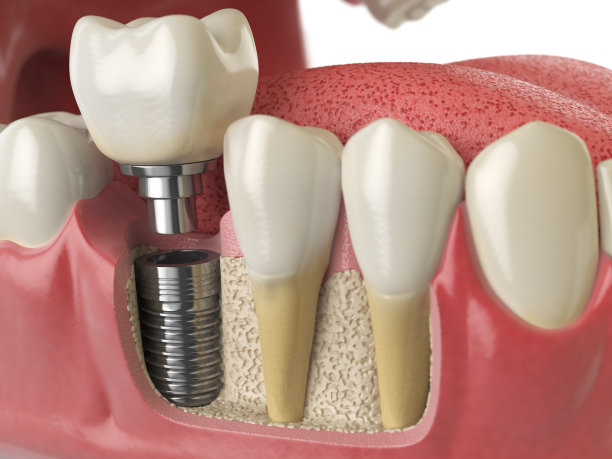Comprehensive Guide to Understanding and Choosing Dental Implant Treatments for a Healthier Smile and Improved Quality of Life
Summary: This comprehensive guide delves into the world of dental implants, providing a thorough understanding of the various treatments available to enhance oral health and overall quality of life. From the basics of what dental implants are to their numerous benefits and considerations for potential patients, this article aims to equip individuals with the knowledge needed to make informed decisions. We will explore the different types of dental implants, the steps involved in the treatment process, and essential factors to consider when choosing the right options. Ultimately, this guide serves as a valuable resource for anyone seeking a healthier smile and improved life quality through dental implant treatments.
1. Understanding Dental Implants and Their Types

Dental implants are artificial tooth roots made of biocompatible materials designed to support replacement teeth. They are a popular solution for individuals experiencing tooth loss due to injury, decay, or other dental issues. Understanding the different types of implants is crucial for selecting the right treatment. There are typically three major types of dental implants: endosteal, subperiosteal, and zygomatic implants. Each type has unique applications depending on the patient’s specific needs.
Endosteal implants are the most common type and are surgically placed directly into the jawbone. These implants can hold one or more prosthetic teeth and are usually made from titanium, which integrates well with bone. Subperiosteal implants, on the other hand, are placed beneath the gum but above the jawbone and are an option for patients with insufficient bone height. Zygomatic implants are the least common and involve placement in the cheekbone when the jawbone is insufficient for traditional implants.
Selecting the right type of dental implant is essential and should be based on an individual assessment by a dental professional. Factors to consider include the condition of the jawbone, the number of teeth being replaced, and a patients overall oral health. Understanding these options can guide patients toward making informed decisions for their dental care.
2. The Process of Getting Dental Implants
The dental implant process typically involves several stages, beginning with a comprehensive dental evaluation. During this initial consultation, dentists assess the patients oral health, taking X-rays and sometimes CT scans to evaluate bone density and structure. This thorough examination ensures that the patient is a suitable candidate for implants and helps the dentist formulate a personalized treatment plan.
After the evaluation, the surgical phase begins, where the dental implant is strategically placed in the jawbone. This usually requires local anesthesia and may involve sutures. The healing period is critical, spanning several months, during which osseointegration occurs—this is when the bone fuses with the implant, ensuring stability. Post-operative follow-up appointments are essential to monitor healing and address any concerns.
Once healing is complete, abutments, which are connector pieces, are attached to the implants. Afterward, impressions are taken to fabricate custom-made crowns. The final step is placing these crowns, providing aesthetic and functional restoration of the teeth. Understanding the complete implant process helps set realistic expectations for candidates.
3. Benefits of Dental Implants for Quality of Life
Dental implants offer numerous benefits that contribute to enhanced quality of life. Firstly, they improve both aesthetics and functionality. Unlike dentures, which can be uncomfortable and cumbersome, dental implants are designed to look and feel like natural teeth, enabling patients to eat and speak without difficulties. The confidence boost from having a complete smile can significantly enhance an individual’s social interactions.
Secondly, dental implants promote oral health. Unlike traditional bridges that require adjacent teeth to be altered, implants do not compromise neighboring teeth. They also prevent bone loss that typically occurs after tooth loss, maintaining facial structure and preventing premature aging.
Lastly, dental implants can be a long-term solution, often lasting many years or even a lifetime when properly cared for. This durability translates into fewer replacements and lower long-term costs, making implants a wise investment for many individuals. The combination of functionality, aesthetic appeal, and long-term benefits makes dental implants an ideal choice for numerous patients.
4. Factors to Consider When Choosing Dental Implant Treatments
Choosing the right dental implant treatment involves several considerations, starting with the expertise of the dental professional. Its crucial to select a qualified and experienced implantologist, as their skill can significantly impact the success of the procedure. Researching credentials, patient reviews, and before-and-after photographs of previous work can provide additional confidence.
The financial aspect is another vital factor. Dental implant treatments can be a significant investment, and understanding the costs involved, including surgery, materials, follow-up care, and potential financing options, is essential. Insurance coverage can vary, so contacting providers to explore benefits is recommended.
Lastly, patient-related factors such as overall health, lifestyle habits, and specific oral conditions should be considered. Smokers and individuals with underlying health issues may require special assessments before proceeding with implants. Engaging in an open dialogue with the dental professional about these factors can lead to the best personalized treatment plan tailor-made for the patients needs.
Summary:
In conclusion, navigating the realm of dental implants requires a comprehensive understanding of the types, processes, benefits, and essential considerations involved in making informed choices. With the right knowledge and professional guidance, patients can achieve a healthier smile and enhanced quality of life through suitable dental implant treatments.
This article is compiled by Vickong Dental and the content is for reference only.



